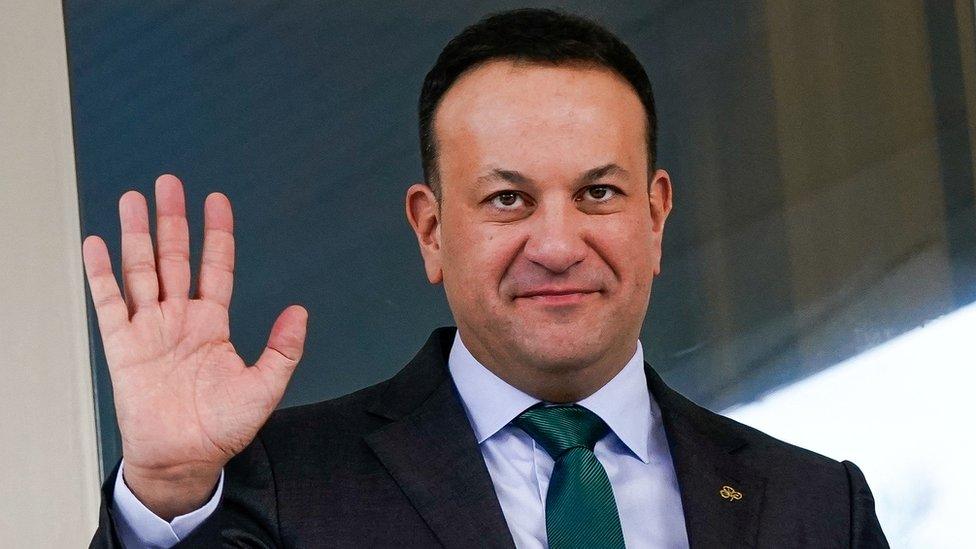Leo Varadkar pledges to press case for NI same-sex marriage
- Published
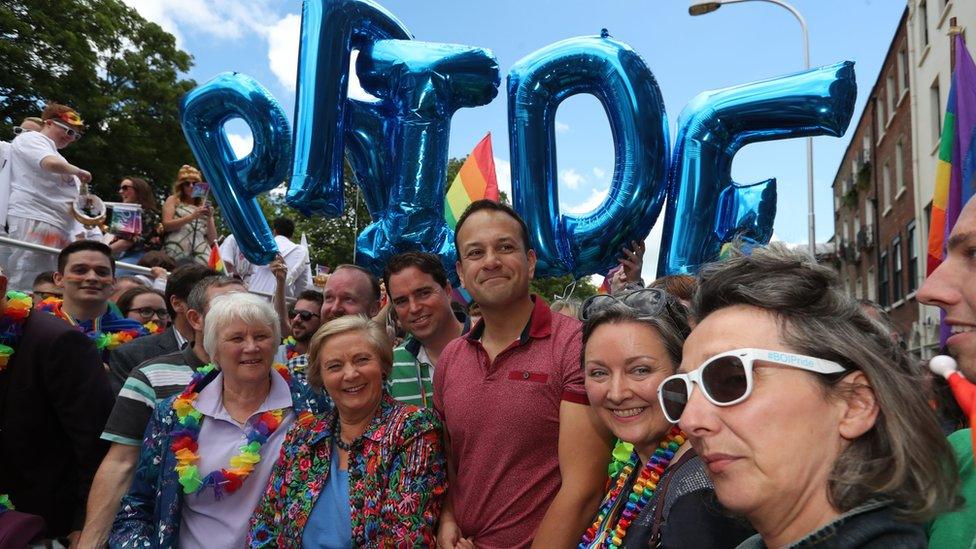
Leo Varadkar and Tánaiste (Deputy Prime Minister) Frances Fitzgerald attended the Dublin Pride parade
Taoiseach (Irish Prime Minister) Leo Varadkar has promised to use his position to campaign for same-sex marriage in Northern Ireland.
Mr Varadkar made his pledge as he addressed the annual Pride festival in Dublin on Saturday.
It was the first time an Irish leader has marched in Dublin's Pride parade.
Mr Varadkar, 38, was elected as taoiseach earlier this month, becoming the youngest ever, and the first openly gay, leader of the Republic of Ireland.
In his address to the crowd on Saturday, he said: "I pledge as taoiseach to use my office, for as long as I hold it, to advance the cause of LGBT [lesbian, gay, bisexual, and transgender] rights, to press for marriage equality across Ireland."
He also promised to "speak up for LGBT rights around the world where they are under attack, and to push for the implementation of the sexual health strategy here at home at a time when it is more important than ever".
'Equality'
Same-sex marriage is legal in the Republic of Ireland but not in Northern Ireland, which remains the only part of the UK not to introduce same-sex marriage legislation.
Mr Varadkar said he would be "pressing for marriage equality in Northern Ireland where currently our citizens do not have the same rights as we do".
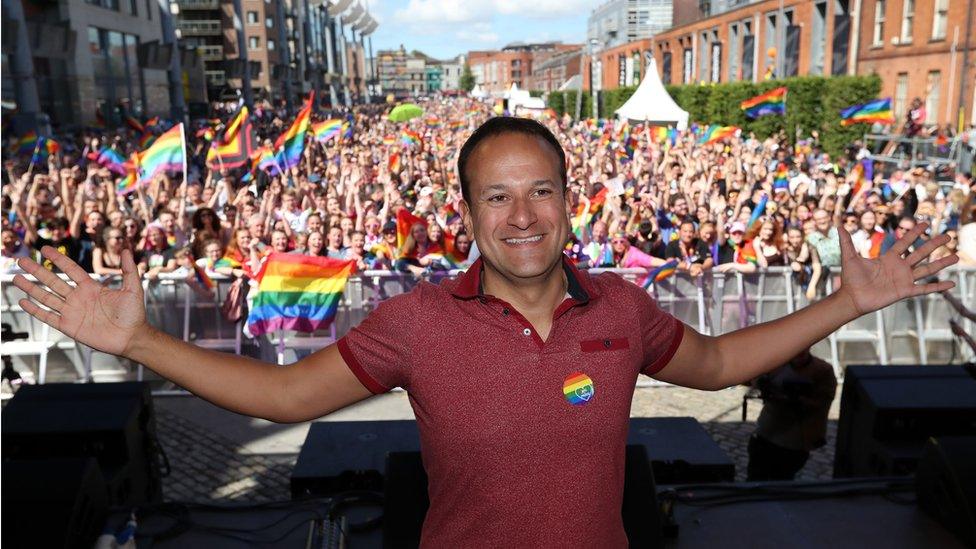
Leo Varadkar said he would use his office to promote gay rights around the world
Same-sex marriage has been a contentious subject at the Northern Ireland Assembly, where members have voted five times on the issue.
On the fifth time of asking, in November 2015, they voted in favour by a slim majority of 53 votes to 52.
However, the Democratic Unionist Party (DUP) used a Stormont veto, known as a petition of concern, to prevent any change in the law.
During his first official meeting as taoiseach with DUP Arlene Foster on 16 June, Mr Varadkar raised the issue of same-sex marriage.
He later said there was "not a meeting of minds" on the subject, but added he believed it was "not a matter of if, but when" Northern Ireland changed its law.
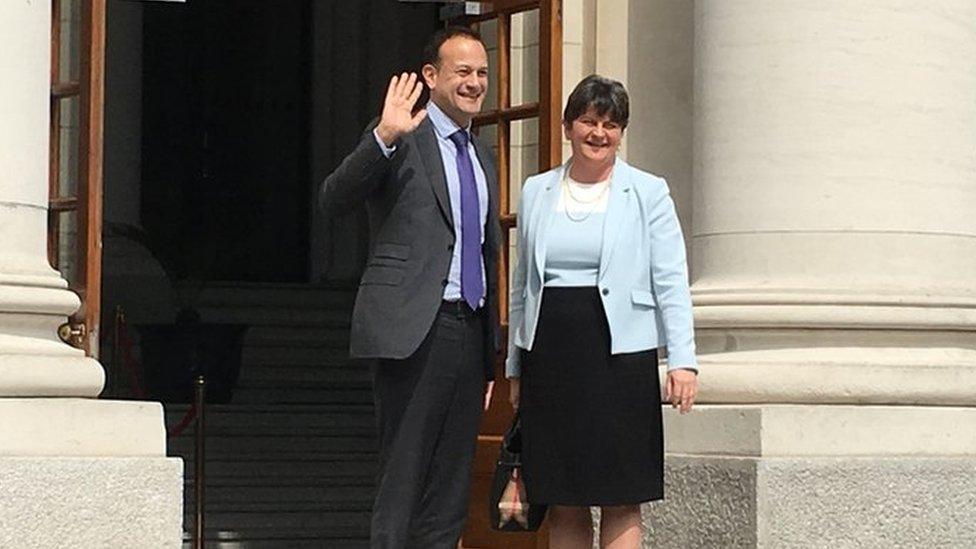
Leo Varadkar discussed same-sex marriage when he met DUP leader Arlene Foster in Dublin on 16 June
This year's Dublin Pride festival is not the first one that Mr Varadkar has attended, but it is the first time a serving taoiseach has participated in the event.
His election as taoiseach on 14 June has been hailed as an embodiment of dramatic change in Irish society.
Homosexuality was a criminal offence in the Republic of Ireland until June 1993.
But in 2015, it became the first country in the world to legalise same-sex marriage through a popular vote.
Shortly before the 2015 referendum, Mr Varadkar came out as gay during an interview with Irish broadcaster, RTÉ.
Speaking at the time, the then minister for health said: "I won't be allowing my own background or my own sexual orientation to dictate the decisions that I make."
He added: "I just kind of want to be honest with people. I don't want anyone to think that I have a hidden agenda."
'Enormous changes'
When he was elected taoiseach, much of the international media attention focused on his Indian heritage and his sexual orientation, whereas Irish mainstream media focused mainly on his age and economic policies.
As he addressed the 30,000-strong crowd at Dublin Pride on Saturday, Mr Varadkar acknowledged that shift in Irish attitudes.
"I don't think my election as taoiseach actually made history, it just reflected it - reflected the enormous changes that had already occurred in our country," he said.
"So, I don't think that I have changed things for you; I think people like you have changed things for me."
- Published17 June 2017
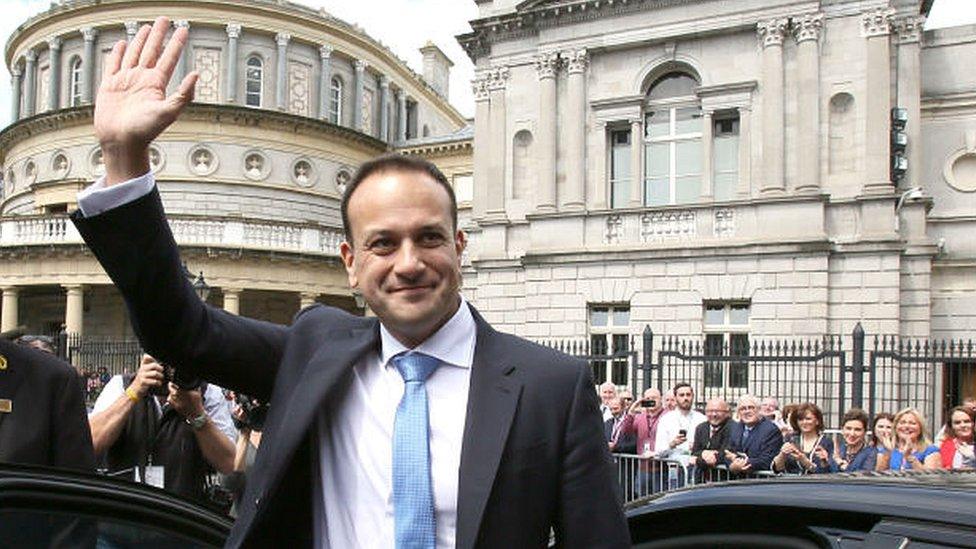
- Published20 March 2024
